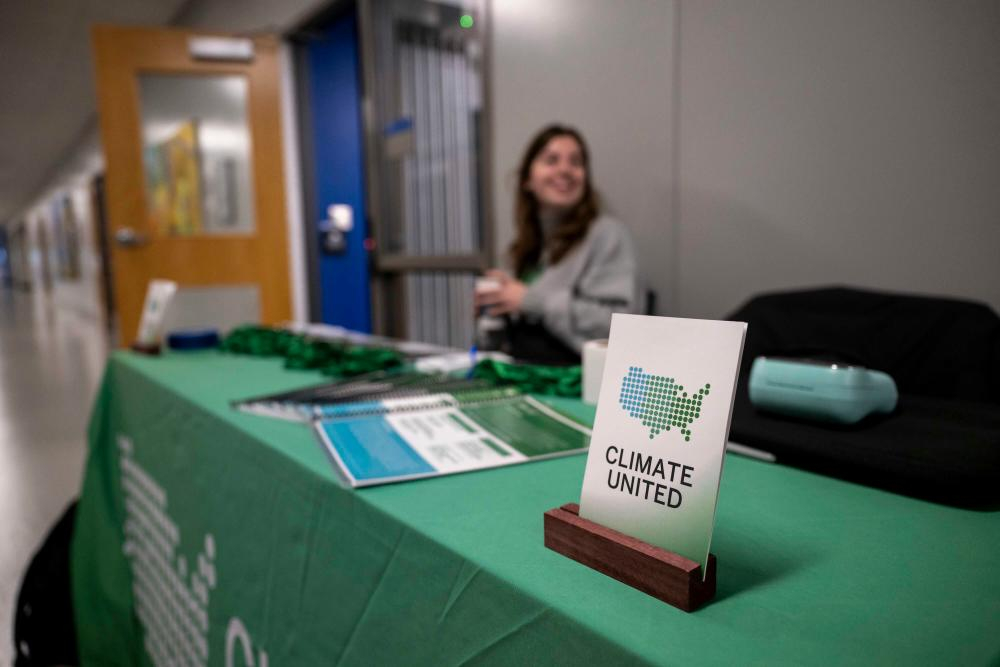
- Details
- By Chez Oxendine
- Energy | Environment
The Environmental Protection Agency has been stopped from terminating $14 billion in funding for clean energy financing, including hundreds of millions for projects in Indian Country.
On Tuesday, Judge Tanya Chutkan halted an attempt by the EPA to claw back funding awarded under the National Clean Investment Fund, which helped create three financing coalitions to support clean energy projects across the country. Chutkan’s injunction prevents the EPA from terminating NCIF grant funding. In a significant development, the judge amended her ruling on April 19, clarifying that Citibank must disburse funds “properly incurred since the mid-February suspension,” expanding the financial relief to the coalitions beyond what was initially ordered.
Per a press release from one of the plaintiffs, Climate United, restored access to funding will enable the group to continue on with its mission. Climate United was awarded $6.9 billion in April of last year under the NCIF.
“Today’s decision gives us a chance to breathe after the EPA unlawfully — and without due process — terminated our awards and blocked access to funds that were appropriated by Congress and legally obligated,” Climate United CEO Beth Bafford said. “After a year-long application process, we were hired to do a job that we’ve done for decades: investing in communities and strengthening markets. We want to get back to work.”
That work includes supporting 22 tribal energy initiatives that had secured a total of $6.3 million in pre-development funding from Climate United's NEXT program. One such project is the Quapaw Nation of Oklahoma's planned community microgrid, designed to significantly reduce tribal members' energy costs. According to Climate United Chief Community Officer Krystal Langholz, the organization had committed to deploy 10% of its portfolio—almost $700 million—in partnership with Native communities, part of a broader $1.5 billion committed to Indian Country under GGRF programs.
The NCIF is part of a wider EPA program called the Greenhouse Gas Reduction Fund, which set aside $27 billion for clean energy funding under the Inflation Reduction Act in 2022. In addition to the NCIF, the GGRF also encompasses the $6 billion Clean Communities Investment Accelerator (CCIA), which aims to build financing hubs in areas that traditionally lack access to credit, and Solar for All, a $7 billion program which supports building solar energy projects in underserved communities.
Those funds are kept in accounts at Citibank in a mechanism meant to ease funding access and management for grantees. It’s a tactic often used by the U.S. Treasury, but the GGRF marked the first time the EPA utilized said framework.
Funds in those accounts related to both the NCFI and CCIA were frozen in late February following concerns raised by EPA Administrator Lee Zeldin, who later announced on March 11 he would terminate the grants entirely and claw back $20 billion. Zeldin cited widespread fraud and self-dealing, but failed to provide evidence of such when grantees sued to halt the termination. On March 15, Chutkan awarded a temporary restraining order that prevented the EPA from removing the money from the accounts.
In an April 3 hearing, Chutkan seemed skeptical as Justice Department lawyers swayed between insisting that the EPA was not given sufficient oversight over the funding and saying that the grants should be terminated because they did not align with President Donald Trump’s energy policy.
In either case, the agency should have secured a court order before freezing access to the funding and attempting to terminate the contract, Chutkan responded.
“I don't think anybody's going to argue that EPA can't change direction, but you have to comply with the law when you do that,” Chutkan said. “You put the cart before the horse.”
Chutkan’s ruling on the injunction falls in line with broader judicial opinions regarding the EPA’s ability to terminate grants issued under the Inflation Reduction Act, per reporting by Politico. Judge Mary McElroy of U.S. District Court for the District of Rhode Island presided over a suit against multiple US agencies brought by six conservation groups that received IRA funding.
McElroy ruled that the EPA, Department of Energy, and Department of Interior have all unlawfully frozen funding issued under the IRA. In addition to ruling that funding related to the plaintiff groups should be unfrozen, she widened her order to all IRA and IIJA grants nationwide. While the president should have the power to enact their agenda, McElroy said, those powers were not unilateral nor superseded Congressional allocations.
“Agencies do not have unlimited authority to further a President’s agenda, nor do they have unfettered power to hamstring in perpetuity two statutes passed by Congress during the previous administration,” McElroy said during her ruling.
The web of lawsuits around federal attempts to freeze or terminate funding are likely to escalate to the Supreme Court, as have several other challenges to President Donald Trump’s broad application of executive powers under a wave of executive orders. However, without an injunction that would provide access to awarded funding, groups like Climate United would have been forced to renege on grant arrangements, costing “thousands of good paying jobs,” Climate United wrote in a news release.
“After eight weeks of being unable to access funds, the order will enable Climate United to continue to pursue its mission,” the group wrote. “Climate United will press forward to invest in projects that lower energy bills, create jobs, cut pollution, build strong communities, and help jumpstart American manufacturing.”
Editor’s Note: This story has been updated to include Judge Chutkan’s April 19 order clarifying the obligations imposed on Citibank.
